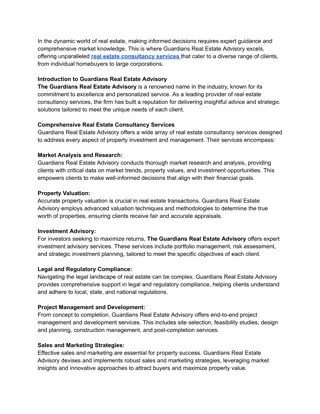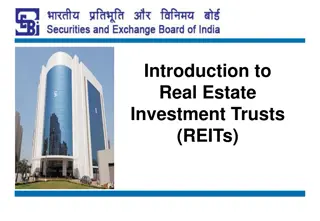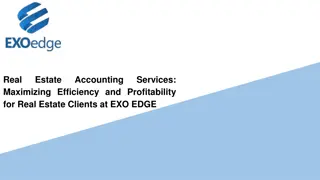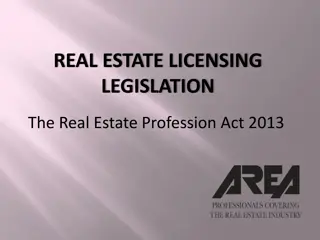
Unlock the Power of Your IRA with Real Estate Investments
Are you aware that you can diversify your retirement portfolio beyond the usual stocks and bonds? With a Self-Directed IRA (SDIRA), you have the incredible opportunity to invest in real estate and other alternative assets! This investment strategy a
Uploaded on | 5 Views
Download Presentation

Please find below an Image/Link to download the presentation.
The content on the website is provided AS IS for your information and personal use only. It may not be sold, licensed, or shared on other websites without obtaining consent from the author. If you encounter any issues during the download, it is possible that the publisher has removed the file from their server.
You are allowed to download the files provided on this website for personal or commercial use, subject to the condition that they are used lawfully. All files are the property of their respective owners.
The content on the website is provided AS IS for your information and personal use only. It may not be sold, licensed, or shared on other websites without obtaining consent from the author.
E N D
Presentation Transcript
Unlock the Power of Your IRA with Real Estate Investments! Are you aware that you can diversify your retirement portfolio beyond the usual stocks and bonds? With a Self-Directed IRA (SDIRA), you have the incredible opportunity to invest in real estate and other alternative assets! This investment strategy allows you to take control of your retirement funds and explore a wealth of possibilities. Why Consider Real Estate Investments in Your IRA? Investing in real estate through an SDIRA can provide you with significant benefits, including potential for higher returns, diversification of your investment portfolio, and a hedge against market volatility. However, before diving in, it s essential to understand the specific rules and regulations that govern real estate investments within an IRA. Key Points to Keep in Mind
Real Estate IRA Rules: 1.Title Ownership: The property title must be held in the name of your IRA. This means that the IRA, not you personally, owns the investment, and all transactions must go through the IRA. 2.Management of Income and Expenses: All income generated from the property, whether from rent or sales, and all expenses related to the property must be managed through your IRA. This ensures that the investment remains tax- advantaged. 3.Restrictions on Personal Use: One of the critical rules is that you cannot use the property for personal or family purposes. This means you cannot live in, vacation at, or rent the property to family members. 4.Repairs and Maintenance Costs: All repairs and maintenance expenses must be paid directly from the IRA. Using personal funds for property-related expenses can jeopardize the tax-advantaged status of your IRA. 5.No Self-Dealing or Prior Ownership: You cannot purchase property that you or a family member have previously owned. This rule prevents conflicts of interest and ensures that the investment is made solely for the benefit of your retirement. 6.Understanding UBIT: Be aware of the Unrelated Business Income Tax (UBIT), which may apply to profits generated from properties that are financed. If you use borrowed funds to purchase real estate, the income generated could be subject to this tax.
Prohibited Transactions: When investing through an SDIRA, it's crucial to avoid prohibited transactions, which can lead to penalties and disqualification of your IRA. Here are some key points to remember: No Personal Investments: You cannot invest in personal properties, such as your primary residence, nor can you rent the property to family members. All investments should focus on enhancing your retirement savings. Transactions with Disqualified Persons: Be cautious about transactions with disqualified persons. This includes family members and entities you control. The goal is to ensure that all investments are made solely for the benefit of your retirement account. Focus on Retirement Growth: All investments should be aimed at growing your retirement portfolio, not for personal gain or benefit. Regulations: To ensure compliance and avoid penalties, keep the following regulations in mind: Standard Contribution Limits: Stick to the standard IRA contribution limits set by the IRS. This will help you maintain your tax-advantaged status. IRS Compliance: Familiarize yourself with IRS rules and regulations surrounding SDIRAs to avoid costly mistakes. Non-compliance can lead to unexpected tax consequences that could affect your retirement savings.
Conclusion While the flexibility and potential of Self-Directed IRAs are enticing, it s essential to approach real estate investments with caution. These investments can be risky, and the rules governing them can be complex. Always perform due diligence and consider seeking professional advice to navigate the intricacies of SDIRAs. At SAI CPA Services, we can help you understand the ins and outs of investing in real estate through your IRA. Our team is dedicated to assisting you in making informed decisions that align with your retirement goals. Don t hesitate to reach out to us today for personalized guidance on unlocking the full potential of your retirement investments!






















